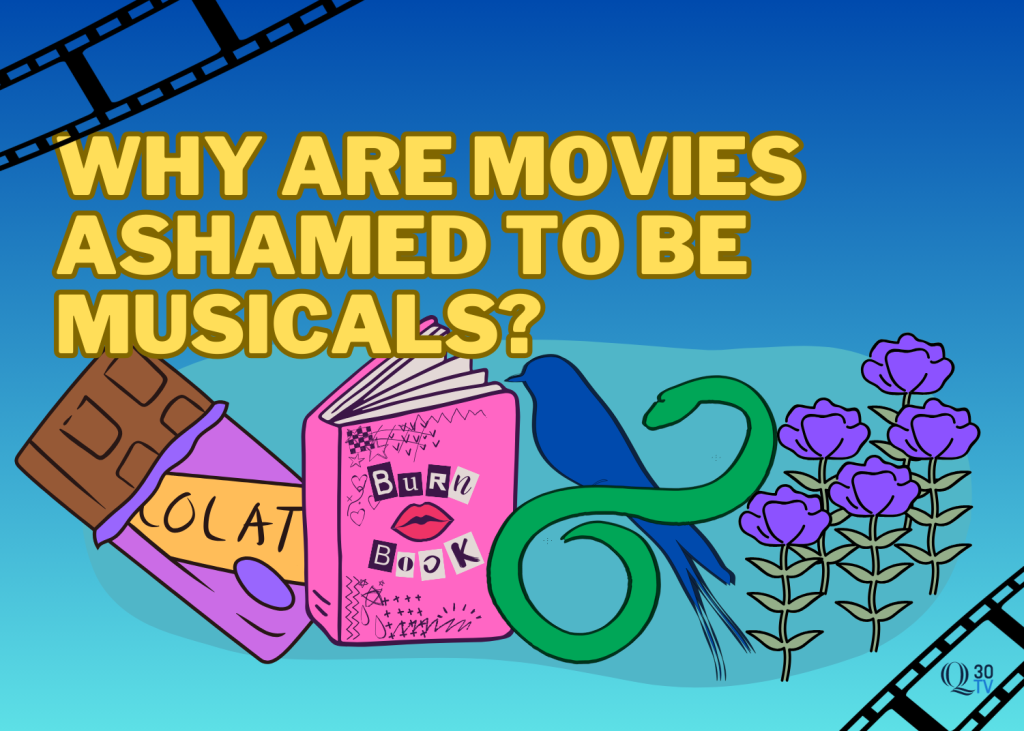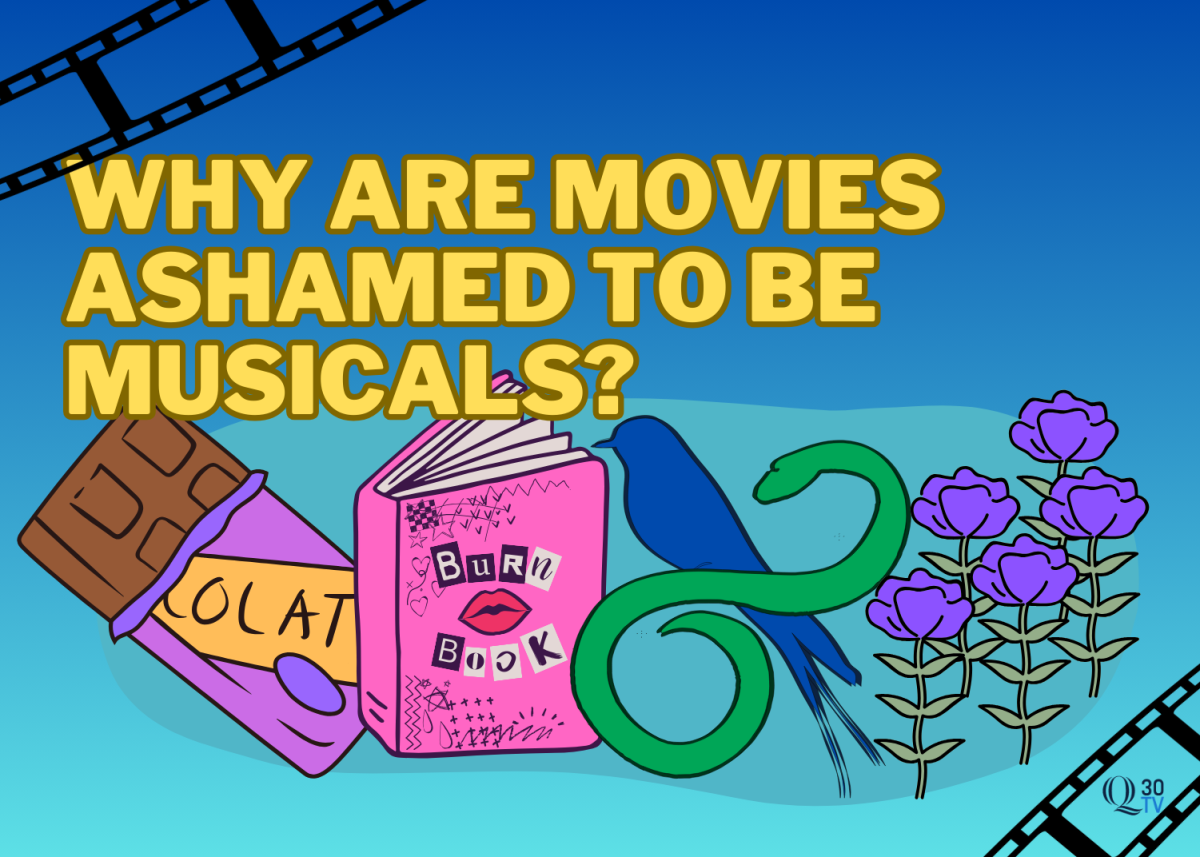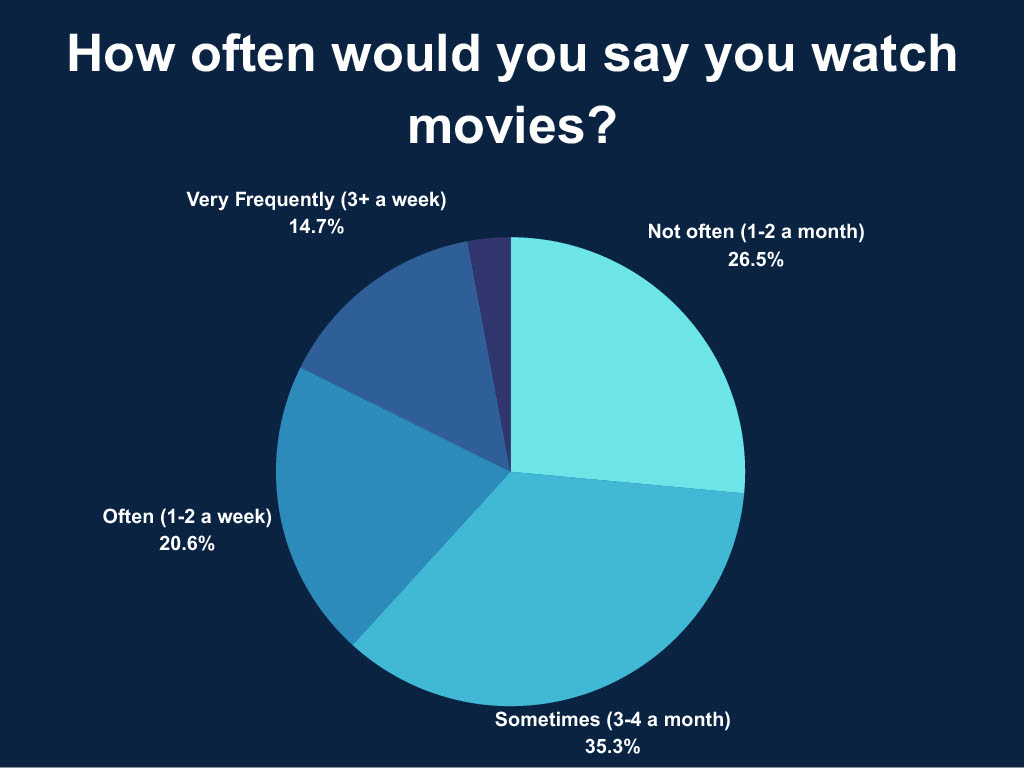In December of 2023, I went with some friends to watch “Wonka,” the newest film adaptation of the book “Charlie and the Chocolate Factory,” starring Timothée Chalamet as the slightly insane titular chocolatier, and Calah Lane as his assistant Noodle. While the audience seemed to enjoy the film, there was a moment of audible confusion and even some giggling at the start, and not because of the zany jokes. It was because, out of nowhere, Chalamet started singing “A Hatful of Dreams,” the first of many songs that were apparently in the movie.
Now I had known Wonka would be a musical thanks to a leaked video of the aforementioned song being filmed in Lyme Regis, England, back in 2021. And while the previous two adaptations of Roald Dahl’s classic had featured musical numbers, it’s clear that not everyone else watching got the memo, with people complaining online about being blindsided by the songs, and even wanting to walk out. It’s honestly no surprise, seeing as how the advertising for the movie did little to show off the catchy songs.
The first official trailer for “Wonka” only had seven shots clearly showing a scene from a musical number (or “performance shots”), each only a second or two long. The second trailer only has five, and I’m not counting any time we hear “Pure Imagination” or see Hugh Grant’s Oompa Loompa singing their classic song, since those are both elements of the original 1971 film.
“Wonka” isn’t an outlier in this situation. It seems that almost every movie musical trailer coming out recently has been hiding its show-stopping numbers.
In the first trailer for “Mean Girls,” the 2024 movie adaptation of the 2018 Broadway musical “Mean Girls” based on the original 2004 movie “Mean Girls” (say that five times fast), we only get 11 performance shots. It also features the song “get him back!” by Olivia Rodrigo, instead of one of the 13 songs in the film. The final trailer has 6 shots and a few clips of star Reneé Rapp singing “Meet the Plastics,” but the rest uses “Not My Fault,” an original song by Megan Thee Stallion and Rapp, which is not a musical number. The average non-theater kid audience has no reason to think the characters are gonna sing, as shown in this (spoiler alert) TikTok where the entire crowd groans at the screen when Cady Heron (Angourie Rice) starts belting out a song.
“The Hunger Games: The Ballad of Songbirds and Snakes” (yes it’s a musical, change my mind) features two performance shots in the first trailer and one in the second. While the book it’s based on features Lucy Gray Baird (Rachel Zegler) and her covey singing songs, audiences who haven’t read the “Hunger Games” prequel won’t be expecting the nine boot-stomping ballads.
Even Adam Sandler’s “Leo” is a musical, but the teaser and official trailer feature one performance shot each, and almost refuse to indicate that there are nine original songs.
The only trailers that seem to know what movie they’re advertising are for “The Color Purple,” which features 12 performance shots in the first trailer and includes a clip of the song “I’m Here.” The second trailer has a whopping 20 shots and includes the song, “Push Da Button,” and the third trailer has 28 performance shots and includes A THIRD SONG, “Hell No!”
When you think about it, though, the fact that only three out of 11 trailers make any attempt to sell their film as a musical raises the question:
Why are movies so ashamed to be musicals?
Well, according to a recent report from Deadline, focus groups hate musicals. They have a negative reaction towards the idea of them, and positive results are typically only gained by “tricking” audiences into watching musicals while telling them it’s just a normal film. Warner Brothers and Paramount Studios, the production studios behind “Wonka” and “Mean Girls,” respectively, purposefully strayed away from the music in advertising because of this.
From these findings I’ve discovered the true root of the issue: test audiences just don’t know how to have fun. But, in an attempt to see if they’re really on to something and if cinema is doomed forever, I formed my own little focus group.
I polled 34 Quinnipiac students on their thoughts on movie musicals. For transparency, 32% of students are Film, Television, and Media Arts majors, and 11% are film minors. Here are the results of the study:
From my study, I found that even though a majority of students enjoy musicals, those who don’t would still watch one if they felt it had other appealing qualities. Additionally, students were on average likely to watch a movie if it was advertised as a musical.
Now of course test groups run by production studios are going to be more varied and opinionated than mine, so I believe that their audiences didn’t like musicals. But, no offense, they just asked the wrong audience! Obviously the average person is less likely to enjoy a bunch of singing and dancing, so bring in the people that do. You’re not gonna have a preschool class give their thoughts on the newest “Saw” film, so why on earth would you base decisions for a movie musical on opinions from anyone other than someone who likes musicals?
The answer, of course, is money. Studios want to get everyone buying their tickets so they can make 400 “wonkzillion” dollars, and so they purposefully advertise to the mainstream audience. But by inviting in people they know won’t like their movie, they’re setting their films up for negative reviews. It’s worth more in the long run to create a good musical that theater kids will enjoy watching and rewatching, rather than a cash-grab flick that immediately fades from the public consciousness.
But hey, congrats on breaking box-office records.


